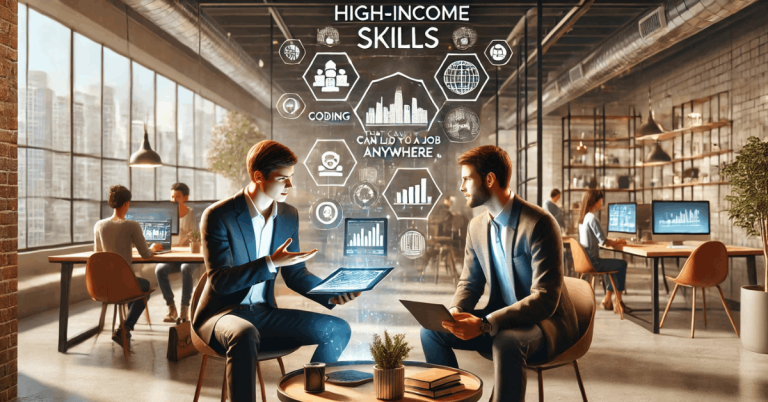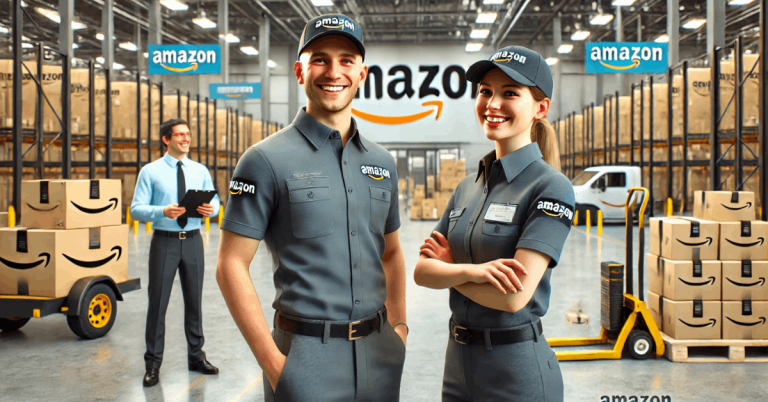Automation and AI will dominate the next decade in the future of work, reshaping industries rapidly. Businesses are adopting advanced technologies to improve efficiency, reduce costs, and stay competitive.
This shift is creating new job opportunities while making some roles obsolete. This article examines the industries set to thrive and how professionals can adapt to these changes.
How Technology and Global Trends Are Changing Jobs?
Advancements in technology and shifts in global trends are reshaping industries. Automation, AI, and digital tools are increasing efficiency and reducing costs.
Many traditional jobs are disappearing while new opportunities are emerging. Remote work, e-commerce, and online services are expanding rapidly.
Companies are adapting to stay ahead in a fast-changing economy. Those who embrace these changes will have a competitive edge.
Technology and Automation
Technology is streamlining processes and changing how industries operate. Automation and AI are replacing repetitive tasks while creating new roles.
How AI Is Transforming Industries?
Artificial intelligence is revolutionizing finance, healthcare, and manufacturing. Banks use AI for fraud detection and customer service automation.
Hospitals rely on machine learning for faster diagnoses and personalized treatments. In manufacturing, AI-driven systems improve quality control and production speed.
While some jobs are lost to automation, demand for AI specialists is rising. Workers must adapt by learning new digital skills.
Robotics in Manufacturing and Logistics
Robotics is improving efficiency and reducing costs in factories and warehouses. Automated assembly lines boost production speed and precision.
In logistics, robotic systems handle sorting, packing, and transportation. This technology minimizes human errors and workplace injuries.
While some physical jobs are disappearing, robotics creates new opportunities in maintenance and programming. Companies investing in robotics are gaining a major advantage.
Renewable Energy and Sustainability
The shift toward clean energy is creating jobs and transforming industries. Solar, wind, and green technologies are replacing fossil fuels at a fast pace.
The Growth of Solar and Wind Energy
Renewable energy is expanding as countries move toward sustainability. Solar panels and wind turbines are becoming more affordable and widespread.
Businesses are investing in these alternatives to reduce carbon footprints. Governments are offering incentives to boost clean energy adoption.
New job opportunities are emerging in installation, maintenance, and innovation. The demand for skilled workers in this sector is increasing rapidly.
How Sustainability Is Changing Business?
Many industries are adapting to eco-friendly practices to meet new regulations. Companies are cutting waste, using recycled materials, and reducing emissions.
Green construction is gaining momentum, with energy-efficient buildings in demand. The electric vehicle industry is growing, shifting focus from gas-powered cars.
Consumers prefer brands committed to sustainability, influencing corporate decisions. Businesses that fail to adapt risk falling behind.
Healthcare Innovations
Technology is transforming healthcare, making treatments more effective and accessible. Telemedicine, AI-driven diagnostics, and biotechnology are reshaping patient care.
How Telemedicine and Biotechnology Are Changing Healthcare?
Telemedicine allows patients to consult doctors remotely, improving accessibility to care. Personalized medicine tailors treatments based on genetics, increasing effectiveness.
AI-driven diagnostics help detect diseases faster and with higher accuracy. Biotechnology is advancing drug development, leading to more targeted therapies.
Wearable health devices track vital signs, alerting users to potential health issues. Healthcare is evolving, creating new opportunities for medical professionals and researchers.
How Technology Is Improving Healthcare Delivery?
New technology is making healthcare more efficient and accessible.
- AI-powered systems assist doctors in diagnosing diseases earlier.
- Telemedicine platforms provide remote consultations, reducing the need for hospital visits.
- Electronic health records improve coordination between medical professionals.
- Robotics enhance surgical precision and recovery times.
- Wearable devices help monitor chronic conditions in real time.
- Automation in hospitals speeds up administrative tasks, reducing errors.
Information Technology and Cybersecurity
The rise of digital systems is changing industries, making data storage and communication more advanced. Cloud computing and the Internet of Things (IoT) are playing a significant role in this shift.
How Cloud Computing and IoT Are Expanding
Cloud computing allows businesses to store and access data remotely. IoT connects devices, improving automation in homes and industries.
Smart systems help track and analyze information more efficiently. Data security is now more important than ever.
Why Cybersecurity Is Essential
Cyberattacks are increasing, targeting personal and business data. Companies must invest in stronger defenses to protect sensitive information.
AI-driven security systems help detect and prevent threats faster. Without cybersecurity, digital systems remain vulnerable to hacking.
E-Commerce and Digital Marketing
Online shopping and digital transactions continue to grow, changing how businesses operate. Consumer habits are shifting as more people rely on e-commerce platforms.
Why Online Retail Is Growing?
E-commerce platforms make shopping more convenient and accessible. Mobile payments and digital wallets speed up transactions.
Businesses are adapting to meet changing consumer expectations. AI-powered chatbots provide instant customer support.
Logistics companies are improving fast delivery services to compete. More brands are investing in online marketplaces to reach global audiences.
How Do Digital Marketing and Data Analytics Help Businesses?
Companies use data analytics to understand consumer preferences. Personalized ads increase engagement and sales.
Social media platforms help brands connect with customers. AI tools analyze trends and predict shopping behaviors.
SEO strategies improve website visibility and search rankings. Digital marketing continues to evolve, shaping business success.
Education and Online Learning
Technology is changing education, making learning more flexible and accessible. Online platforms and e-learning tools are replacing traditional classrooms in many areas.
How Online Learning Is Growing?
More students are using e-learning platforms for flexible education. Virtual classrooms allow access to lessons from anywhere.
Interactive tools improve engagement and retention. AI-driven tutors provide personalized learning experiences.
Digital certifications are becoming widely accepted. Education is evolving, opening new opportunities for learners.
The Future of Educational Technology
AI-powered tools are making learning more personalized and efficient. Augmented reality (AR) and virtual reality (VR) create immersive learning experiences.
More universities are adopting hybrid models combining online and in-person learning. Mobile apps make courses accessible to more people.
AI-driven assessments improve testing accuracy. The future of education is centered around technology and accessibility.
Wrapping Up on the Future of Work
Rapid technological changes will shape the Future of Work. Industries that adapt to AI, automation, and sustainability will thrive.
Online learning and digital skills will be essential for staying competitive. Embracing innovation is the key to success in the evolving job market.












